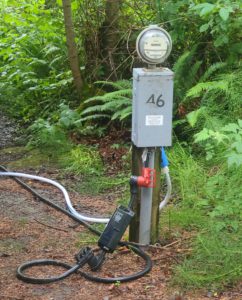
We look at electricity for our home differently as compared to the way we look at electricity in an RV park. At home, we assume that the electricity coming from the power company will be a pretty constant 120 volts and 60 hertz.
We don’t have to worry about the house being miss wired. After all, we have been living in it for a long time without any problems and we don‘t continuously connect and disconnect the power from the house as we do when we travel from RV park to RV park. The only thing that we might worry about is surge protection for our TVs and computers. With an RV you need to protect your investment with RV Surge Protection.
Modern RV electrical systems allow you to utilize many of the modern conveniences that you’ve become accustomed to. As awesome as it is to have access to all your electrical equipment on the road you want to keep it working smoothly. It helps to have a basic understanding of your RV’s electrical system. With an understanding of your RV’s electrical system, there are a number of power problems you will need to protect yourself from.
This post contains affiliate links. As a participant in Amazon Associates and various affiliate programs, we are compensated when qualifying purchases are made through our referral links at no additional cost to you. Full Disclosure
One RV, Two Electrical Systems
Your RV has two separate electrical systems: a 12-volt DC electrical system and a 120-volt AC system. The 12-volt system is powered by a battery (or in some cases, multiple batteries), and it powers things such as the start-up on your water heater, furnace, and refrigerator, plus most of the lights in your RV’s living space, your water pump, your carbon monoxide detector, and a number of other things.
The 120-volt system is powered by an RV electrical hookup plug or a generator, and it powers daily use items like kitchen appliances, your TV, and other large electrical appliances.
Potential Electrical Problems
As more and more RVs hit the road, packed campgrounds are common. Some older RV parks may have ancient electrical systems that may not provide efficient power for newer RVs. Fill up the campground with modern units all demanding their share of the juice can lead to low voltage in your RV and all the problems that come with this.
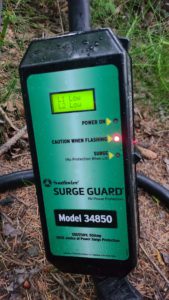
On our recent trip to Thousand Trails La Conner RV & Camping Resort we had been at our site for about a week and a half when about 8pm one night the TV shut down. I looked up to see that the clock on our microwave was off too.
I went outside to check the breaker on the pedestal to find our Southwire Surge Guard reading Low Voltage on L1 and L2. Thankfully our Surge Guard protected our RV from the low voltage by shutting off power to it.
The Surge Guard will shut off power during low voltage situations, when there is a power surge or if the pedestal is miswired. When the low voltage situation is over or once the power surge is done and the power is safe again the Surge Guard will reset and allow power back to the RV.
Wiring Issues
There are three areas of concern when we plug into a pedestal at a campground, especially a campground that has been around for a long time. There is no way of knowing the condition of the wiring or the circuit breakers on the pedestal. The pedestal could have reverse polarity, no ground wire, or no neutral connection. Any of these conditions could cause severe damage to the electrical components in your RV.
A lot of modern RVs especially 5th Wheels and Class A Motorhomes run on 50 amp service putting a strain on older parks’ infrastructure.

High or Low Voltage
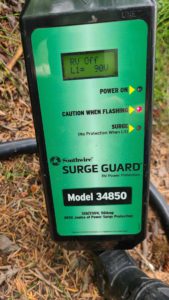
Another concern is high and low voltage. All 120-volt appliances are designed to operate at a range of 102 to 132 volts. Anything outside that range will be problematic. Either one of the conditions can cause permanent damage to your electrical appliances.
The most common of the two conditions is low voltage. This can be caused by aging equipment, weather conditions, faulty wiring, and undersized or deteriorating electrical connections. Probably the most common cause of low voltage is a crowded campground with everyone running their air conditioners during the hottest part of the day.
What constitutes an unsafe, low-voltage situation? The National Electrical Code (NEC) indicates that 114 volts are the lowest acceptable operating voltage. That’s an excellent standard to reach for. But in the real world, 108 volts may be the lowest operating voltage that can squeak you past potential damage. When our Surge Guard shut down our power L1 and L2 were both reading 90 volts.
Power Surges

The third concern that we face is power surges or voltage drops. This is when too much power comes through to your RV. These power surges and subsequent voltage drops can cause damage to sensitive electrical components.
We see power surges even in our homes as well as at campgrounds. Probably the most damaging form of a power surge is caused by lightning strikes. While it could damage your surge protector, it will save you costly repairs to your RVs electronics and appliances. However, because of the destructive power of a lightning strike, no electrical appliance can be guaranteed against one. The only way to completely avoid damage is to unplug your RV until the storm has passed.
Surge Protector or Electrical Management System (EMS)?
To avoid the problems that can arise from a wiring problem at the campsite, you need a device that will test for the various problems.
There are two types of surge protectors. The first is a basic surge protector. This is similar to a surge protector typically found in your home. A surge protector will only protect your RV from a surge in power, nothing else. I wouldn’t buy one of these to protect my RV. There are way too many wiring issues out there that a basic surge protector won’t protect you from.
The second type of protector is an Electrical Management System (EMS). The EMS has more features and protects against more situations than a standard surge protector. The EMS checks the incoming voltage levels and will trip a relay to disconnect your coach if there is a power issue.
Electrical Management System (EMS)
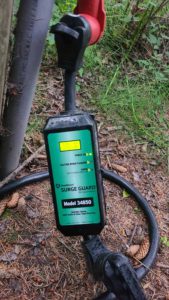
These products will protect your RV from most, if not all, of the problems stated above. The two top companies making EMS units are Southwire and Progressive Industries both make a family of electrical safety products for the RV industry. Whether your RV has 30 amp or 50 amp capability, each manufacturer provides a device to fit your needs.
These units come in both portable and hardwired models. The portable units simply plug into the pedestal and then the RV power cord plugs into the device. The hardwired units fit between the power cord and the RV.
These protection devices will protect your RV from reverse polarity, lost neutral, no ground wire, voltage on the ground wire, over-voltage, under-voltage, and power surges.
Electrical Management Systems with all the features are fairly expensive but well worth the one-time cost that you will pay. The cost of replacing a TV or two, a DVD player, a Microwave, or a Refrigerator will be much more than the cost of an electrical safety device. In extreme cases, it is possible for a fire to ensue from an electrical problem.
I personally purchased the Southwire Surge Guard Model 34850, (Southwire has upgraded this model to Model 34950). I feel confident that when I plug into any RV park pedestal my RV will be protected from any electrical problem that might exist at the pedestal.
The unit will not provide power until it has run the necessary checks on the power quality at the pedestal. When the tests are successful, a relay will engage and power will then be supplied to the rig. If there is a problem, the relay will trip and power will be removed from the rig until the problem is solved.
Surge Protection For Your RV
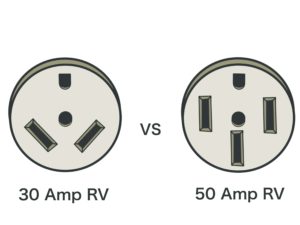
First, you will need to know if your coach is 30 or 50 amps.
If you have a smaller travel trailer or Class B or C Motorhome you more than likely have a 30 amp system. These 30-amp EMS Devices are what you’re looking for to protect your RV.
If you have a Class A Motorhome or large 5th Wheel Trailer you probably have a 50 amp system. These 50 amp EMS Devices are what you’re looking for to protect your RV.
There are many other surge protectors you can find for your RV, but Southwire and Progressive Industries models are the ones I would trust the safety of my RV to.
Conclusion
Theoretically, we could assume that every campground will be the same with adequate wiring and safe power. After all, a qualified electrical contractor laid the lines and installed the correct circuit breakers, transformers, and any other equipment necessary to provide power to the campground. However, things like age, use, and weather can cause problems with the electrical system.
You need to protect your RV investment with some sort of surge protection. Purchasing one of these units is like making a one-time insurance premium payment. Insurance is one of those necessary evils that we have to endure.
Thank you for taking the time to read our article on RV Surge Protectors. If you have any questions or comments please leave them below.
If you’re looking to build your own home-based business like we have with this webpage, check out Wealthy Affiliate.
Wealthy Affiliate is an all-in-one platform that you can build your whole affiliate marketing business on. It combines training, software, and website hosting into one. This makes the whole process of starting an online business from scratch much easier, especially if you’re new to building a website.


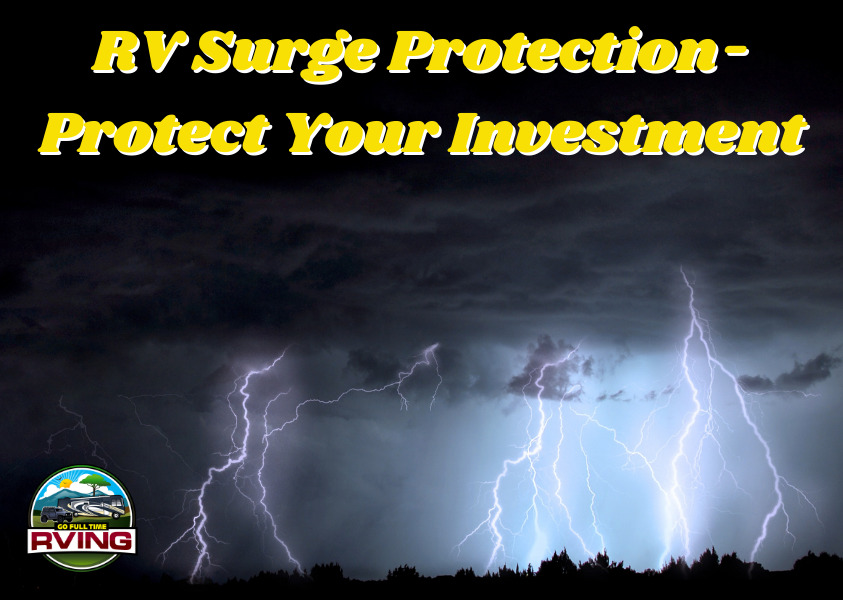

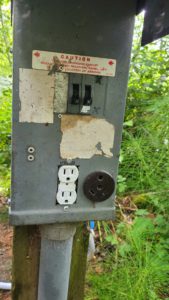

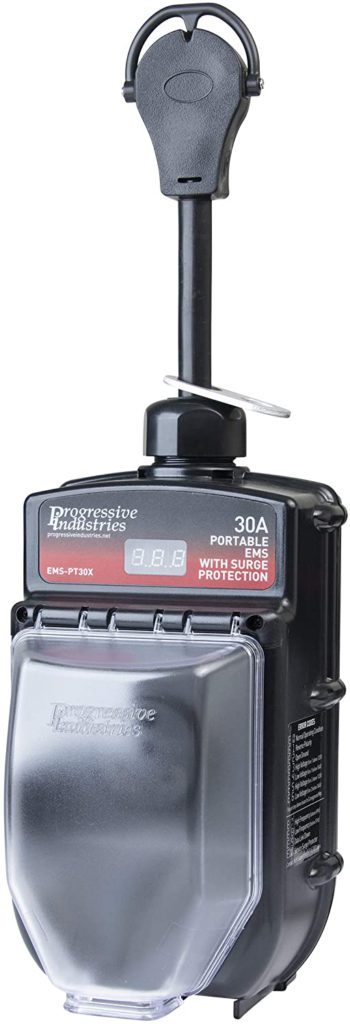

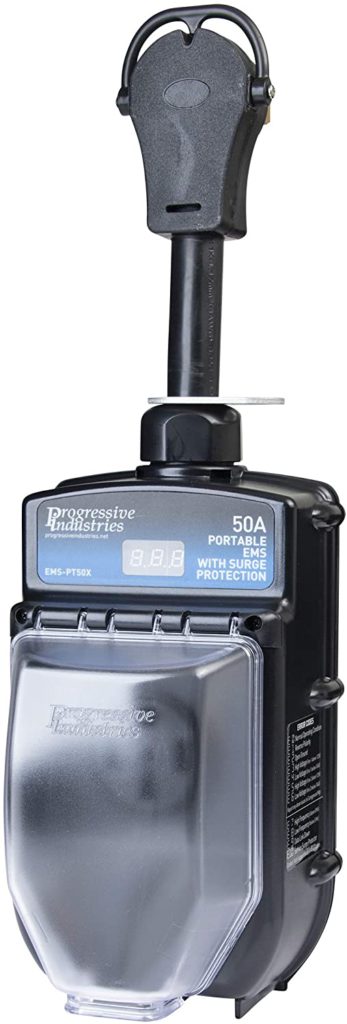

Oh wow this is a quite review. I must say that you are right saying that we worry about our power and how we are getting it only when we need to “make” it. It would be nice if it was much easier and that we can just turn on and off according to our needs.
Hi Sunny, Thank you for your comments. I agree it would be great if we could just turn the power off and on as needed but so many items need constant power.
Hiya, thanks for this article. I learnt a lot of information from this which I didn’t even know. I never thought about where electric power comes from especially in a caravan before, I just assumed they were all battery powered but know I get it. I’m glad I came across this post because I would like to go out and try a caravan.
Hi Sariyah, Thank you for your comments. Our motorhome can run on coach batteries, but they wouldn’t last too long without some sort of external power to re-charge them. Either generator, solar or grid power to keep the batteries charged. I highly recommend giving RVing a try.
Rob